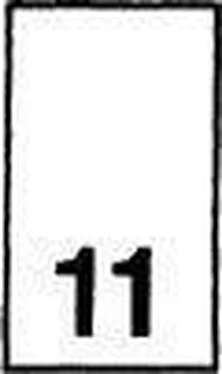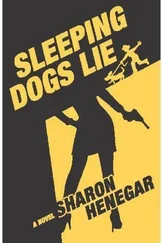“Jesus,” said Sota. “You scared me.”
“It’s about time,” said Cabell. “Let’s get out of here.”
As he glanced down the hallway to look for the most likely exit, he saw two things he didn’t like. One was that black smoke started to pour out of the crack under the door of one of the rooms down the hall. It wasn’t seeping out; it looked as though it were being blown out with a fan. The second thing he saw didn’t look as ominous at first. On the ceiling of the hallway thirty feet from Cabell’s head, a little red disk popped and fell to the carpet. Then the little brass pinwheel it had held in place started to spin. It gave a hissing, gurgling noise, and then began to spew a thick spray of muddy, rust-colored water onto the carpet. A second later the next spigot did the same. Cabell started to run, but it was too late. All along the pipeline, the spigots of the sprinkler system popped and vomited red-brown, icy water down on the hallway. The first eruption was so cold that Cabell’s heart stopped and he gasped, but in an instant he and Sota were drenched. As he sloshed toward the exit, he could taste the metallic, gritty stuff, and he kept waiting for the pipe to clear itself and maybe blow the sediment off his head and out of his eyes. But he made the exit without knowing if it ever got any clearer.
As they dashed out of the main entrance and slopped onto the pavement, Cabell could see two or three other men moving away. He looked to see if any of them were running, but they all moved with the same chagrined strides that he was taking. The son of a bitch they were supposed to kill must be long gone. If he had still been here, they would have heard him laughing.
Wolf finished ripping the woman’s dress off her bloody, lifeless body. He slipped the wet rag over his clothes and cinched it together with her dead companion’s belt, rolled his pant legs up over his knees, then pulled a little tablecloth that had “Chicago” embroidered on it off the counter, folded it, threw it over his head and tied it under his chin like a scarf. The torn, bloodstained dress covered his clothes, and if nobody got too close, he might make it the five yards to the car.
The only one out there who would be positive the woman couldn’t be dragging herself out of the burning building to drive herself to the emergency room was the one who had brought the knife across her throat. If any of the others were still around the motel, with all the noise and smoke attracting police and firemen and gawkers, they weren’t likely to open up on anything wearing a bloody dress. He just had to hope the one with the knife was gone.
As he slipped the bolt on the back door of the office, he had a brief attack of irrational reluctance. There was something horrible about the possibility of dying in this bizarre costume. But he reminded himself that he didn’t know any way of dying that wasn’t horrible, and if they got him, it wouldn’t much matter what he looked like. He swung the door open and bent over to cross the open space as quickly as possible.
Wolf slipped into the old Ford station wagon, started it and pulled away from the back of the motel slowly. There was a car parked across the drive, but nobody seemed to be in it, so he pulled around it and bumped across the lawn and onto the highway. When he saw the fire engines coming toward him, he pulled over to let them pass, but after that, he felt it was probably safe to get into the left lane and give the car its last hard ride. It was probably only good for about a half-hour drive, and after he abandoned it, the heirs would undoubtedly junk it.
“I love you,” said Elizabeth.
“I know,” said Jimmy. He was cheerful about it, and he seemed to mean it, but she wanted him to say, “I love you too,” and he didn’t seem to think this response was appropriate from somebody who was already four and on his way out the door to catch his ride.
“Be good.”
“Okay,” he said, then stepped out the door and ran down the steps toward the van. She watched him climb up the big step and pivot to sit down hard on the bench seat in the back. They grew up so fast. No, it wasn’t growing up; it was growing away–becoming a separate person.
Elizabeth spotted Amanda crawling across the floor toward the pole lamp. As she approached it, she was like a soldier in a movie scrambling up the last few yards of a beach under fire. Her little legs pumped so fast that her knees slipped out from under her and she made a premature grab for the pole. Elizabeth closed the front door and got there in time to hold the lamp upright as Amanda lifted her body, hand over hand, up to a standing position. She looked pleased and proud as she stared up at the bulb, her little face containing a hint of the explorer planting a flag on a peak, as well as a hint of the escaped felon. She had made it in time to keep her mother from stopping her. “Up, up, up so tall,” said Elizabeth helplessly.
It was a simple matter to hold the pole firmly while Amanda bent her knees and bobbed up and down in an attempt to dislodge it and topple it over. “Careful, baby girl. That’s not a good game.” Elizabeth acknowledged that she should have stored it in the garage with the glass coffee table months ago. Maybe tonight, when she had gotten into her jeans and sweatshirt, she could face that corner of the garage. Jim used to do that sort of thing. A lot of the stuff in there was just where he had put it a year ago, and it would probably stay there forever. She wasn’t very good at getting rid of things.
Elizabeth heard Maria open the door behind her and then hang her purse on the doorknob. “Hello, Maria,” she said. “Say hello to Maria, Amanda. Say, ‘Hi, Maria! How’s it going?’ ”
Maria moved into the living room. “I’m here, little Amanda,” she said. “I missed you so much. I wanted to come back just as soon as the sun came up. I said, ‘Where’s my little Amanda? I better get dressed quick and run to the car.’ ” This was to tell Elizabeth that she knew she was late, and that nothing was wrong. “Now we better say bye-bye to Mama.” This was to tell Elizabeth that she was dismissed.
Maria snatched up Amanda and carried her to the door for the ceremony. Elizabeth kissed the baby’s incredibly smooth little cheek, and Amanda’s fat little chin started to quiver, her eyes filled with tears and she began to cry the lament of the forsaken. Elizabeth said, “I’ll be back before you know it. I love you,” and the tiny, uncomprehending victim held her arms out in a final plea as her mother slipped out the door. For some stupid reason, this morning she could feel tears forming in her own eyes as she hurried down the steps toward the garage. She knew that the stupid reason was that her period was going to start, and that a lot of unnecessary hormones were coursing through her and making her feel weepy. But at the same time she also didn’t know it, because even though it always happened, and had since she was thirteen, each time it was as though such a reaction had never occurred before. Because what she was feeling was as real as any other feeling at any other time, and maybe it was, after all, the true reaction. Maybe the difference was that at other times she had the strength to keep herself from seeing things clearly.
As she started the car, she thought again that it was probably going to begin giving her trouble unless she found time to get it into the shop for maintenance this week. Maybe Thursday, so it would be okay again by Friday and they wouldn’t have any excuse to keep it over the weekend. This morning everything seemed to be overdue and about to fall apart.
As Elizabeth drove into the city, she made a point of looking at the trees. She had read in a doctor’s column in a magazine that looking at trees was a cure for stress. It had something to do with focusing one’s eyes on faraway objects, and something to do with the color of the leaves. But the same column had said that a cure for depression was looking at the light in the sky just before the sun came up. She hadn’t missed a day at that in one year and two weeks.
Читать дальше












